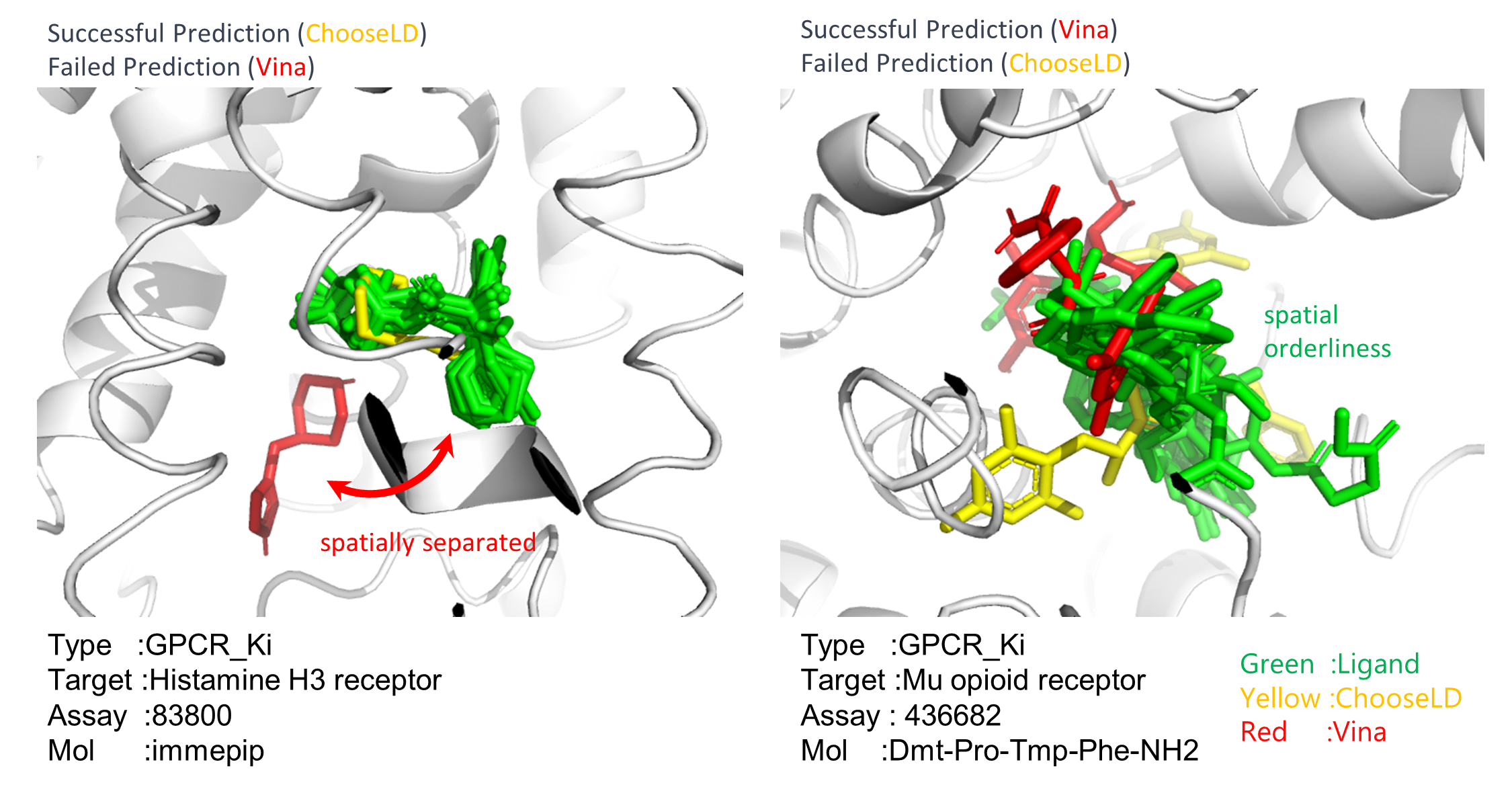1
"Data-driven score tuning for ChooseLD: A structure-based drug design algorithm with empirical scoring and evaluation of ligand–protein docking predictability" by Akihiro Masuda, Daichi Sadato, Mitsuo Iwadate is published in BPPB as the J-STAGE Advance Publication.
2024 September 23 BPPB
A following article is published as the J-STAGE Advance Publication in "Biophysics and Physicobiology".
Akihiro Masuda, Daichi Sadato, Mitsuo Iwadate
"Data-driven score tuning for ChooseLD: A structure-based drug design algorithm with empirical scoring and evaluation of ligand–protein docking predictability"
URL:https://doi.org/10.2142/biophysico.bppb-v21.0021
- Abstract
- Computerized molecular docking methodologies are pivotal in in-silico screening, a crucial facet of modern drug design. ChooseLD, a docking simulation software, combines structure- and ligand-based drug design methods with empirical scoring. Despite advancements in computerized molecular docking methodologies, there remains a gap in optimizing the predictive capabilities of docking simulation software. Accordingly, using the docking scores output by ChooseLD, we evaluated its performance in predicting the bioactivity of G-protein coupled receptor (GPCR) and kinase bioactivity, specifically focusing on Ki and IC50 values. We evaluated the accuracy of our algorithm through a comparative analysis using force-field-based predictions from AutoDock Vina. Our findings suggested that the modified ChooseLD could accurately predict the bioactivity, especially in scenarios with a substantial number of known ligands. These findings highlight the importance of selecting algorithms based on the characteristics of the prediction targets. Furthermore, addressing partial model fitting with database knowledge was demonstrated to be effective in overcoming this challenge. Overall, these findings contribute to the refinement and optimization of methodologies in computer-aided drug design, ultimately advancing the efficiency and reliability of in-silico screening processes.





